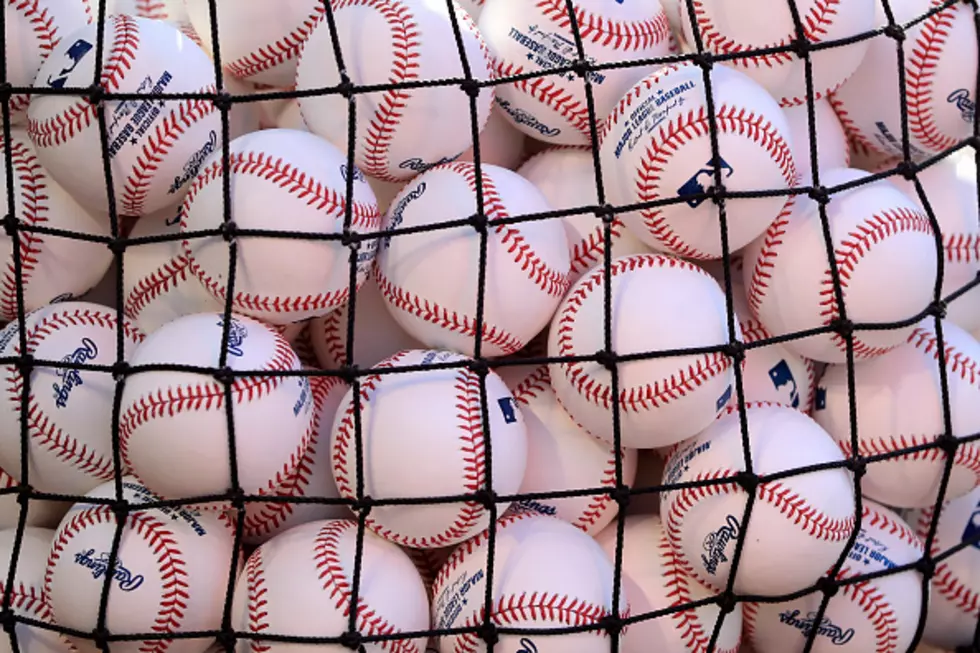
When Is It Too Late to Recoup Your Reputation?
The following is a reflection from WIBX 950's Jeff Monaski after a discussion on the Keeler in the Morning Show earlier in the day on the topic.
Is former MLB outfielder Lenny Dykstra's reputuation so damaged you can now say anything about him?
Before I go any further in explaining why I'm asking the question, please understand this isn't a defense of Dykstra - a former New York Met and Philadelphia Philly - whose tough, rugged reputation earned him the nickname 'Nails' in his playing days. He's also a guy whose been involved-in, accused of, or outright admitted to some pretty shady, and/or illegal things.
I am not defending him. But a court ruling this week regarding his defamation and libel suit against former teammate Ron Darling has me wondering: Does there come a point when someone's name is so tarnished, saying anything about them becomes 'fair game?' And, where is that line?
He was a rugged ball player, and followed it up with a rugged life, apparently. Here are some links to provide context to Dykstra's background:
- In this article, Dykstra claims he is kind-of a gigolo for older widows. He stops short of saying they pay him for sex, instead claiming he provides them with 'companionship' and conversation in exchange for money.
- In this one, it talks about his 2012 conviction and prison sentence after he pleaded guilty to bank fraud, concealment of assets and money laundering.
- He has also admitted to steroid use during his playing days (Hey, at least he admitted it, I guess)
The lawsuit he brought against Darling was over the ex-Met pitcher's book ''108 Stitches: Loose Threads, Ripping Yarns and the Darndest Characters from My Time in the Game,'' in which Darling claims 'Nails' said some really nasty things to a black Boston Red Sox pitcher, Dennis 'Oil Can' Boyd, during the 1986 World Series.
In his book, Darling said the things Dykstra shouted to Boyd were some of the most shameful, foul, hateful, hurtful and racist things he'd ever heard, going so far as to suggest Dykstra's taunts may have been worse than the things Jackie Robinson was subject to when he broke baseball's color barrier in 1947.
I haven't read Darling's book, but based on media reports I've read it doesn't appear he quotes or publishes the actual words he claimed Dykstra used. Instead, describing them as shameful, hateful and racist, etc....you can fill in the blanks for yourself.
The lawsuit was dismissed, ESPN reported, as the judge ruled Dykstra's “reputation for unsportsmanlike conduct and bigotry is already so tarnished that it cannot be further injured.''
If you asked me, a lifelong Mets fan and someone who is somewhat familiar with his post-baseball activities, if I thought Dykstra said it, my honest answer would be: 'Probably.' I mean, I really don't know - I wasn't there (I was three years old at the time).
I would also be of the opinion that Darling was writing about his experience and his memories from the '86 championship season. I don't take every word he wrote as fact. It is his recollection of that time - likely spun, in part, by his own impressions and interpretations of things, coupled with three decades of reflection.
But, here's the issue I have: Is there a time when someone's 'rep' is so far gone you can say anything without repercussion, or without the ability for someone who is called-out by name to defend themselves?
What if I robbed a bank, or a video of me kicking my dog, or my child surfaced, or I cheated my taxes for ten years (to be clear I have done NONE of those things). But, if I did, could you then call me a wife-beater? a child molester? someone who prays on the elderly to scam money from them? (Again, not things I would ever do!).
In baseball, umpires call balls and strikes, out or safe, fair or foul.
In life and society, at least when it comes to legal matters, fair and foul is decided by the court.
After thinking about this court ruling, I'm left wondering: If someone falls from grace in the public eye or admits to doing bad things, do the white lines separating fair and foul become all gray? Even in court?
---------------------------------------------------------------------------------
PHOTOS: Family Brings Ranch Animals to Visit Residents of Assisted Living Center
More From WIBX 950









